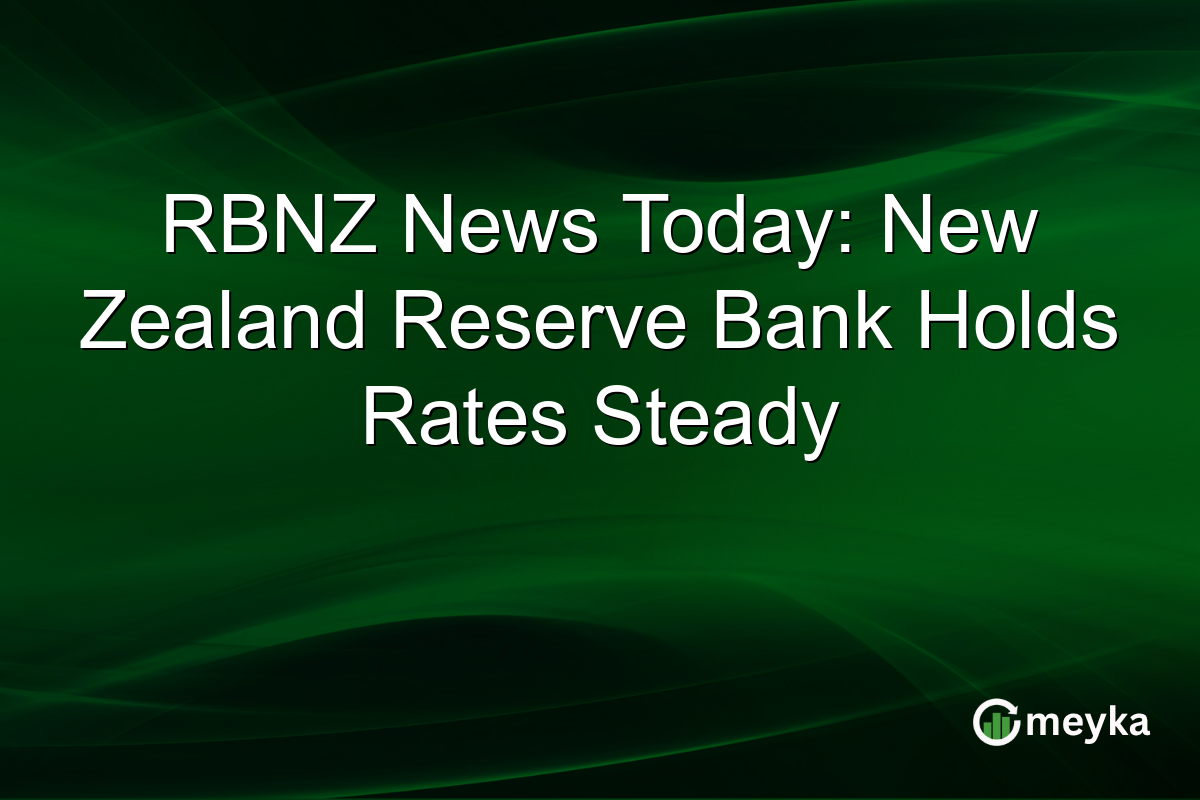RBNZ News Today: New Zealand Reserve Bank Holds Rates Steady
The Reserve Bank of New Zealand (RBNZ) has decided to keep its official cash rate unchanged, a move that surprised many in the financial markets. This cautious approach comes amid persistent inflation pressures and ongoing global economic uncertainties. Understanding the implications of this decision is crucial for mortgage holders, the New Zealand dollar (NZD), and investors who track central bank trends across the Asia-Pacific region.
RBNZ Interest Rate Decision
The RBNZ’s decision to hold its rate steady is a strategic choice, reacting to both domestic and international economic signals. Many expected a rate change due to a slower-than-expected economic recovery. However, the bank seems committed to tackling inflation without destabilizing growth.
The official cash rate remains at 5.5%, a number that stands as a pillar for borrowers and mortgage holders. This decision suggests that the RBNZ aims to stabilize lending conditions, helping citizens manage their financial commitments. Learn more about the RBNZ’s decision.
New Zealand Inflation Outlook
Inflation continues to be a significant concern, with recent reports showing consumer prices rising more than anticipated. Analysts have noted that the underlying inflation rate is hovering around 3.5%. This rate, though manageable, still requires careful oversight.
The RBNZ is likely trying to balance between controlling inflation and not stalling economic growth. By holding rates, they seem to be prioritizing economic stability over aggressive anti-inflation measures for now. This move aligns with their cautious stance in today’s complex financial landscape.
Reserve Bank Policy Impact on NZD and Investors
The RBNZ’s decision has immediate effects on the NZD, which saw a slight decrease against major currencies post-announcement. This can affect various sectors, especially those heavily relying on exports. A stable interest rate can offer some predictability, however.
For investors, this strategy underscores cautious optimism. Central banks across the region are closely watching each other, and New Zealand’s stance might influence their decisions. Investors are advised to monitor these trends as they offer insights into broader regional economic strategies. Read more about the impact on the NZD.
Final Thoughts
The Reserve Bank of New Zealand’s choice to maintain the official cash rate is a calculated response to current economic conditions. While inflation is still a pressing issue, the bank’s decision reflects a commitment to economic stability. For mortgage holders and the broader market, this stability provides a framework for financial planning. As investors watch the RBNZ and other Asia-Pacific central banks, understanding these policy impacts remains key to navigating potential investment opportunities.
Meyka offers real-time financial insights and predictive analytics that help you stay ahead in understanding trends like these across global markets.
FAQs
The RBNZ held the rate steady to balance inflation control with economic stability. Despite pressures, maintaining the rate at 5.5% supports lending conditions without destabilizing growth.
For mortgage holders, a steady interest rate means predictable borrowing costs. This allows them to manage financial commitments without worrying about sudden rate hikes.
The NZD experienced a slight decrease following the announcement. While the rates remain steady, currency markets may respond to associated economic signals, impacting exporters and investors.
Disclaimer:
This is for information only, not financial advice. Always do your research.






